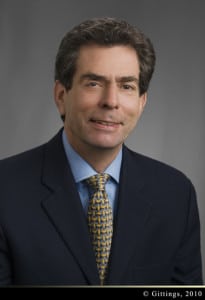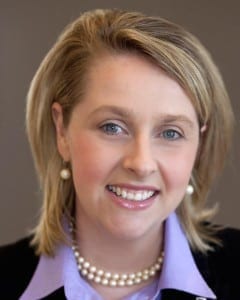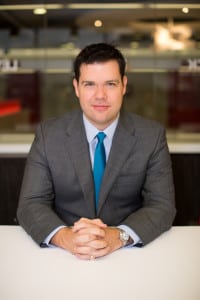In this crowdsourced edition of PR News, several readers requested stories about aspects of crisis communications. Coincidentally, the Volkswagen (VW) crisis broke into the headlines Sept. 18. Dubbed Dieselgate, revelations that the world’s largest automaker, known for its good environmental record, admitted to installing software to allow some 11 million diesel autos to function lawfully during emissions tests and unlawfully at other times, already has claimed the job of VW chief Martin Winterkorn. The company likely is facing multi-billion dollar legal proceedings, not to mention falling sales and share prices. In addition to asking senior PR professionals how they’d advise VW, we also requested an interview with the company to learn about how it’s handling PR and communications during the crisis. Despite the demands of a global crisis, John Schilling, general manager, product communications for Volkswagen, responded to our request promptly (that’s a PR lesson right there). We’ll share his insider’s PR story with you in the Oct. 5 edition of PR News.
Family Affair: Gene Grabowski has personal insight on this one—his dad sold cars for nearly 20 years. Accordingly, Grabowski says, “VW shouldn’t forget about the dealers and salespeople…they are your best ambassadors to the public…make sure they are” taken care of, he says. What VW should avoid is for dealers and salespeople to “commiserate” with the public, saying things like ‘We are as confused as you are about this…we don’t know what went on or what’s happening next.’ Near the top of VW’s priority list, he says, should be “an open line of communications” with dealers in Europe and the U.S.A. When dealers can tell consumers VW is fixing the problem, it will “get rid of the guilt.” If dealers are unhappy, they “will undermine” VW.
Priorities: Speaking late last week, Grabowski counseled VW “within the next 48 hours” to craft “a clear, plausible, concise explanation” as to what happened. “There’s no time for covering up or obfuscation…[and] don’t put out the typical corporate response,” he says. “Fear of the unknown is what keeps a crisis alive. Once there’s an explanation, the healing can begin.” Still, he concedes an investigation “will be painful…[the illegal act] must have included a lot of people not a few rogue employees; top people will have to be sacrificed.” The automaker will be held “to a high standard” for a long time and it must be “transparent,” telling “the world” what happened. Next, he urges VW to “announce” a large sum of money for consumers to get their cars made compliant. “It would be a great PR move…it would get the public’s attention.” Also: Find “a very articulate spokesman for the U.S. to go on talk and news shows…share the anguish and outline what the company is doing to fix things.”
The Patient is Healthy: Grabowski sees VW emerging from this crisis since “it’s not a safety issue or ineptitude…what kills car companies is producing dangerous or poor-quality” vehicles. Still, reputation damage will be great and expensive in terms of advertising it will need to buy to repair its image, he says.
Whom Do You Trust? “In the end this all will come down to trust,” Andy Gilman says. “If I don’t trust the brand or the dealer, I can go someplace else” to buy a car, he says. His top priorities for VW: Decide what your top three messages are, decide what channels you want to distribute the messages on and to which audiences. Assemble your team and check back daily to see if you need to change course. “This can be done without having all the answers” about how the illegal maneuvers were made, Gilman adds. While Grabowski and others we interviewed feel VW is receiving very good legal counsel and has done a good PR job thus far by admitting guilt and having its U.S. CEO, Michael Horn, apologize publicly, Gilman says it’s too early to grade VW’s PR actions. He envisions the scandal “lasting a long time…a lot of lawyers will make a lot of money on this.”
Short and Long Views: Like Gilman, in Laura Howe’s viewpoint, timing is critical. “You have to take a long- and short-term view,” she says. “The immediate issue will be off the front pages in a matter of days…but the investigations will be drawn out and take a long time….every time there’s a lawsuit or investigation all this will be dredged up again…so you need to realize this also is a long-term issue and avoid getting bogged down in short-term, day-to-day things….It’s not easy to do, but maybe [VW] can have someone isolated, viewing the issue from a long-term perspective.”
Trust and Transparency: A VW driver herself, Howe agrees with Gilman and Grabowski regarding trust. VW “should create a beachhead of trust and transparency…that’s what it will come down to…[and] consumers need to know what to do next.”
Silver Lining? One part of Peter LaMotte’s view is optimistic. “This will hurt VW’s reputation and brand…[the unlawful acts are] not something the general public can easily understand…and [more important, the company] lied.” Still, he sees a positive: VW, whose U.S. market stood at just 2% in January, down from 2.3% in January 2014, has a chance to remake itself in this country, he says. It can do so, he believes, by emphasizing trust and transparency. “They have to project the company as the new Volkswagen.” But, like Howe above, LaMotte foresees this turnaround being a long-term project. “Look at BP,” he says, “it’s still rebuilding its reputation” by dedicating resources to cleaning “the Gulf [of Mexico].” The BP oil spill at Deepwater Horizon began in April 2010. [VW last week hired Kirkland & Ellis LLP, the law firm BP used to represent it during Deepwater cases.]
Multiple Platforms: LaMotte advises VW to engage in “basic communications, address your reputation…talk publicly about what you are doing to regain trust…show the public the new VW and do so on multiple platforms…engage on social media and in person to address those who’ve criticized you on trust and work with allies to grow the brand” in the U.S.A. “Take the view that you are a new brand, a new product here in the U.S., we are not the company we once were,” he says. Another must: Demonstrate you have a good product. “They need to put people in those cars; they need to show that despite what happened, theirs is a good product.”
Go Public: While much of VW’s time will be spent with regulators, LaMotte says reputation repair must be aimed at the general public and “it can’t be done in a vacuum, you must engage,” he says. “It will take more than a quick apology tour. This must be seen as a protracted battle to rebuild trust.”
CONTACT: [email protected], [email protected], [email protected], [email protected]
Thank you to Kimberly Foster, advertising and communications manager, Visit El Paso, for suggesting this topic.
This article originally appeared in the September 28, 2015 issue of PR News. Read more subscriber-only content by becoming a PR News subscriber today.




